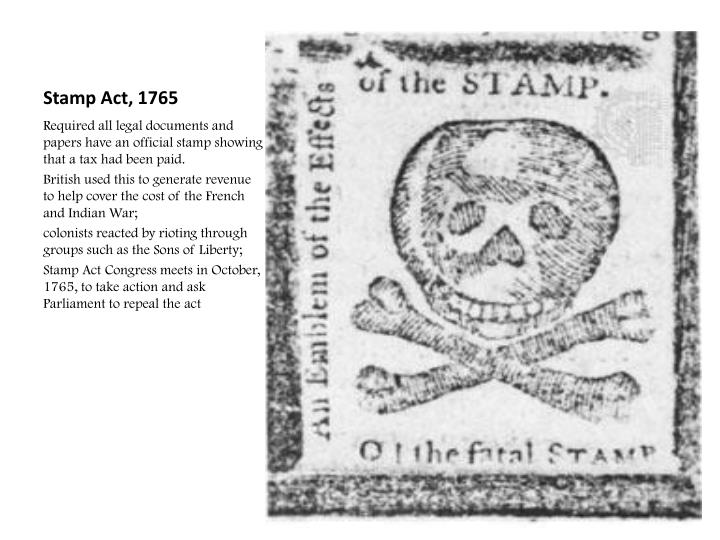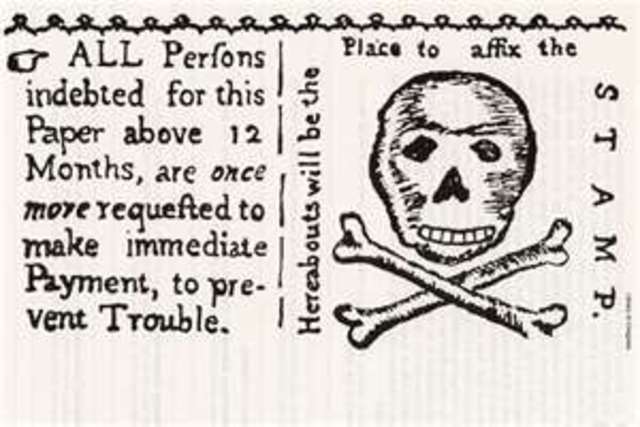

For many of these people, taking a public and political stance was an unusual thing," Smith says.
#Stamp act 1765 free#
"So, the reaction engaged the participation of a range of free colonists - not just political theorists or elected leaders, but more ordinary men and also some women, or 'Daughters of Liberty' as well. Colonial merchants and storekeepers also decided to stop importing some British goods, and consumers agreed not to buy those goods as a way of putting pressure on British merchants and manufacturers."Įven Colonial women took part in these boycotts (or non-importation agreements) of British goods and in producing home manufactured goods to replace them, she adds. "In some places, crowds seized and burned stamps to establish their refusal to recognize the Stamp Act as legitimate. "In various seaport towns in the Colonies, crowds urged Stamp Masters (men appointed to distribute the stamps and collect the stamp duties) to resign rather than enforce the act," she says. Street demonstrations against the new and arguably "unconstitutional" law also ensued, with groups of artisans, tradesmen and laborers forming groups and calling themselves "Sons of Liberty" to oppose the execution of the Stamp Act, according to Smith. Some in Britain saw the war as resulting in a benefit to existing colonists (and taxes in Britain were already fairly high), so Parliament devised a tax that would fall on those colonists." "British authorities now would incur further expense to secure and administer those new territories.

"At the end of the war, France ceded territorial claims to colonies to Britain," says Smith. In North America, this war (called the French and Indian War in the U.S.) engaged troops from Britain and Colonial forces against French troops and their Native American allies. The British Treasury had amassed its debt during the Seven Years War with France, which ended in 1763. "But the act of 1765 was aimed at the population in Colonial North America, rather than on the people of Britain at home." "Since the representative body of the realm - the Parliament's House of Commons - originated this tax, people in England recognized the tax as legitimate, if not necessarily welcome," she says. "Then people buying these items, or making various legal transactions, would pay for the stamp in addition to the retail price or basic transaction cost."Įngland had enacted a similar tax that applied to the English population earlier in the 1700s, according to Smith. "Merchants, shopkeepers, newspaper printers and legal authorities would pay the British government for the stamps, so that would put the money into the British Treasury," says Barbara Clark Smith, curator of the division of political history for the National Museum of American History at the Smithsonian Institution, in an email interview.


 0 kommentar(er)
0 kommentar(er)
